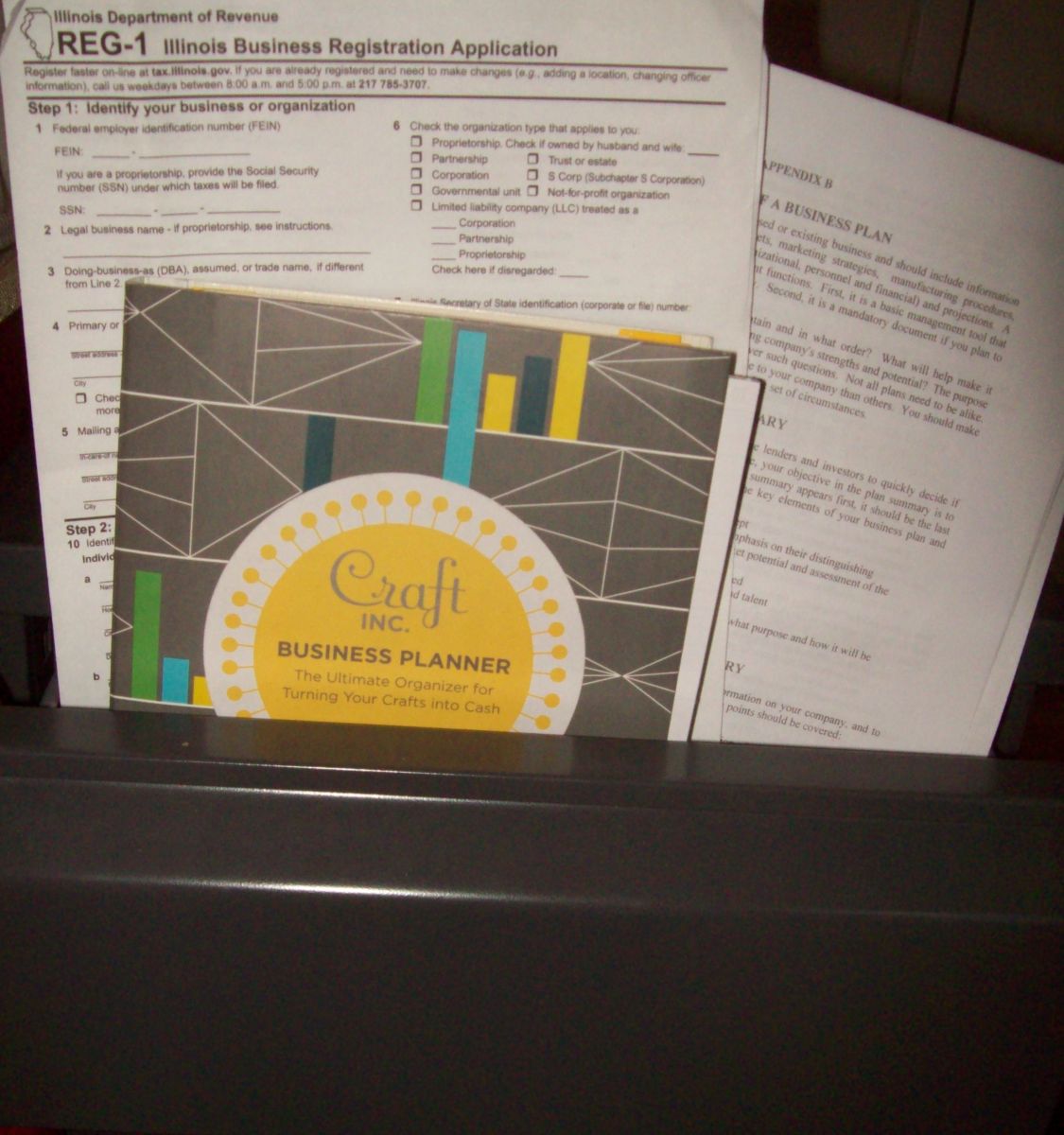Does everyone rave about the sweaters you knit around Christmas time or laugh hysterically at your hand-drawn birthday cards? Then perhaps you have what it takes to start a craft business. This is not a career path to be entered into without trepidation. The costs involved with start-ups can be overwhelming for some and feasible for others.
In their handbook on starting a business, the Illinois Department of Commerce and Economic Opportunity advises to begin the process with confidence and learn first about the cost of running a business. The folks at the DCEO must know what they’re talking about -- 98 percent of businesses in the state are small companies. Here’s a few questions to get you started thinking about your finances before you start a craft business.
CAN YOU DO THIS?
DCEO names the “Feasibility Checklist” as the first step. Before you start a craft business and invest your own money into it, it’s important to fully consider whether or not this is an attainable goal. DCEO suggests asking yourself a series of questions such as “Can you take advice from others?” and “Can you afford to lose your savings?” These address your qualifications to be a small business owner and prepare you for the potential stress involved when you start a craft business. Regardless of whether or not you take on this venture as full or part-time employment, this will be an added stress to your life both financially and mentally, so it's important to know the cost of running a business before you leap into it.
WHO CAN HELP FOR FREE?
Speaking of advice from others, a group of 12,800 retired small business owners volunteer their expertise and experience to SCORE. The U.S. Small Business Association partners nationally with the association’s 800 locations. Their free advice both in person and online saves you from hiring a pricey consultant when you start a craft business. The company claims to have helped 8.5 million entrepreneurs including a 22-year-old, Herm Rowland, CEO of Jelly Belly Candy Co. While they can’t offer legal or accounting advice, they can help you talk through your finances and business plan, and help you plan for the cost of running a business.
WHO IS WORTH PAYING FOR HELP?
SCORE may have helped make Vera Bradley, but they certainly don’t specialize in indie business; that accounting advice you wanted can be found by way of Fox Tax, LLC. The company provides financial services such as payroll set up and tax preparation. The companies’ operators, Alyssa and Mark Fox, work with clients mostly in creative fields. Their personal consulting runs $50 an hour.
HOW MUCH WILL IT COST?
Designer and indie business owner Meg Mateo IIasco provides Craft Inc. Business Planner, as a resource guide designed to help turn “crafts into cash” when you start a craft business. IIasco says craft businesses require little start-up capital: you are the only employee, you can likely work from home and you might not require any expensive equipment. This doesn’t mean you should throw money blindly into your products. You still need to plan for the cost of running a business, and you need to create a budget. For llasco, a budget is the best way to keep track of your businesses income and expenses. This way you can see the balance of what you have put into the business and hopefully, its potential financial gains.
Figuring out your finances and understanding the cost of running a business will likely result in a lot of paperwork. So save yourself the energy of sorting through papers and invest in a file cabinet in which you can stay organized.
Accounting may not be thought of as the artist’s strongest suit, but it doesn’t have to be. When you start a craft business, you just need to seek the proper resources, some organization, and the wisdom to not spend all your profits from one day on a large cheese pizza.






